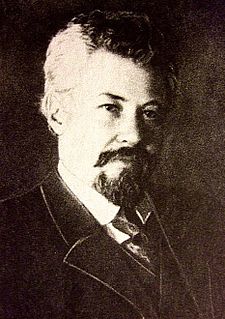
The Australian electoral system comprises the laws and processes used for the election of members of the Australian Parliament. The system presently has a number of distinctive features including compulsory enrolment, compulsory voting, majority-preferential instant-runoff voting in single-member seats to elect the lower house, the House of Representatives, and the use of the single transferable vote proportional representation system to elect the upper house, the Senate.

The 2004 Hong Kong Legislative Council election was held on 12 September 2004 for members of the Legislative Council of Hong Kong (LegCo). The election returned 30 members from directly elected geographical constituencies and 30 members from functional constituencies, of which 11 were unopposed.
Elections in Greece gives information on elections and election results in Greece.

Elections to the All-Russian Constituent Assembly were held on 25 November 1917, around 2 months after they were originally meant to occur, having been organized as a result of events in the Russian Revolution of 1917. They are generally recognised to be the first free elections in Russian history.
India is a federation with a parliamentary system governed under the Constitution of India, which defines the power distribution between the union, or central, government and the states.

Parliamentary elections were held in Zimbabwe on 31 March 2005 to elect members to the Zimbabwe House of Assembly. All of the 120 elected seats in the 150-seat House of Assembly were up for election.
The coattail effect or down-ballot effect is the tendency for a popular political party leader to attract votes for other candidates of the same party in an election. For example, in the United States, the party of a victorious presidential candidate will often win many seats in Congress as well; these Members of Congress are voted into office "on the coattails" of the president.

The ninth Sarawak state election was held on Saturday, 20 May 2006 with nomination day on Tuesday, 9 May 2006. The election functioned to elect 71 representatives to the Sarawak State Assembly. The eighth state assembly was dissolved by Yang di-Pertua Negeri Sarawak, Tun Abang Muhammad Salahuddin Abang Barieng by the advice of Chief Minister Abdul Taib Mahmud, on 24 April 2006.

India held general elections to the 15th Lok Sabha in five phases between 16 April 2009 and 13 May 2009. With an electorate of 714 million, it was the largest democratic election in the world till the Indian General Elections 2014 held from 7 April 2014.

The Indian general election of 1951–52, held from 25 October 1951 to 21 February 1952, was the first election to the Lok Sabha since India became independent in August 1947. It was conducted under the provisions of the Indian Constitution, which was adopted on 26 November 1949. Elections to most of the state legislatures took place simultaneously.

The Indian general election, 2014 was held to constitute the 16th Lok Sabha, electing members of parliament for all 543 parliamentary constituencies. Running in nine phases from 7 April to 12 May 2014, it was the longest election in the country's history. According to the Election Commission of India, 814.5 million people were eligible to vote, with an increase of 100 million voters since the last general election in 2009, making it the largest ever election in the world. Around 23.1 million or 2.7% of the total eligible voters were aged 18–19 years. A total of 8,251 candidates contested for the 543 Lok Sabha seats. The average election turnout over all nine phases was around 66.40%, the highest ever in the history of Indian general elections.

There are six types of elections in the United Kingdom: elections to the House of Commons of the United Kingdom, elections to devolved parliaments and assemblies, elections to the European Parliament, local elections, mayoral elections and Police and Crime Commissioner elections. Within each of those categories, there may be by-elections as well as general elections. Elections are held on Election Day, which is conventionally a Thursday. Since the passing of the Fixed-term Parliaments Act 2011 for general elections, all six types of elections are held after fixed periods, though early elections to parliament and the devolved assemblies and parliaments can occur in certain situations. Currently, six electoral systems are used: the single member plurality system, the multi member plurality system, party-list proportional representation, the single transferable vote, the additional member system and the supplementary vote.

General elections were held in Libya on 17 January 1960.

The 2011 Hong Kong District Council elections were held on 6 November 2011. Elections were held to all 18 District Councils of Hong Kong, returning 412 members from directly elected constituencies, each selecting a council member. After the government's constitutional reform package was passed in 2010, five new seats in the Legislative Council would be created in which the candidates would be nominated by all District Councillors.

Elections for a General National Congress (GNC) were held in Libya on 7 July 2012, having been postponed from 19 June. Once elected, the General National Congress was to appoint a Prime Minister and Cabinet. The GNC was originally to be charged with appointing a Constituent Assembly to draw up Libya's new constitution, but the National Transitional Council (NTC) announced on 5 July that the Assembly would instead be directly elected at a later date.
Parliamentary elections were held in Bophuthatswana on 4 October 1972. The Bophuthatswana National Party led by Lucas Mangope won 20 of the 24 elected seats in the Legislative Assembly.

Constitutional Assembly elections took place in Libya on 20 February 2014. Nominations for elections to the constituent assembly started on 6 October 2013; registration for candidates to the assembly was over as of 11 November 2013. The assembly will be composed of 20 members each from Libya's three regions: Tripolitania, Cyrenaica and Fezzan. The work of the committee is expected to last from March 2014 until July 2014. The constitutional declaration submitted in August 2011 by the formerly ruling National Transitional Council indicated that Congress itself would appoint the commission; however the General National Congress (GNC) voted instead to hold an election for the selection of individuals to the constitutional commission. The constitutional commission will draw up the constitution, which will then be up for vote in a referendum. As of early January 2014, 1,001,910 voters had registered via SMS.

A Legislative Assembly election was held in 2016 for the 294 seats of the Vidhan Sabha in the state of West Bengal in India.The All India Trinamool Congress under Mamata Banerjee won 211 seats, and thus was reelected with an enhanced majority. Like in the 2011 election, the poll was held in six phases. The first phase was held in Naxalite-Maoist affected Red corridor areas with two polling dates: April 4 and April 11. The other phases were held on April 17, 21, 25, 30 and May 5. The result of the election was declared on May 19.

The Himachal Pradesh Legislative Assembly election, 2017 was held on 9 November 2017 to elect all 68 members of the Himachal Pradesh Legislative Assembly.

The 2018 Karnataka Legislative Assembly election was held on 12 May 2018 in 222 constituencies to the Karnataka Legislative Assembly. The election was postponed in Jayanagar and Rajarajeshwari Nagar, following the death of the MLA B. N. Vijaya Kumar and a voter fraud scandal respectively till 28 May. The election saw a voter turnout of 72.13 per cent, the highest in Karnataka since 1952 assembly polls. The counting of votes took place on 15 May 2018.





















